Vulva health 101: Why women should take care of this most intimate feminine area
How often should you wash this intimate area? Can your sanitary pads or underwear affect vulva health? CNA Women asked doctors to shed light on what we need to know about caring for it.
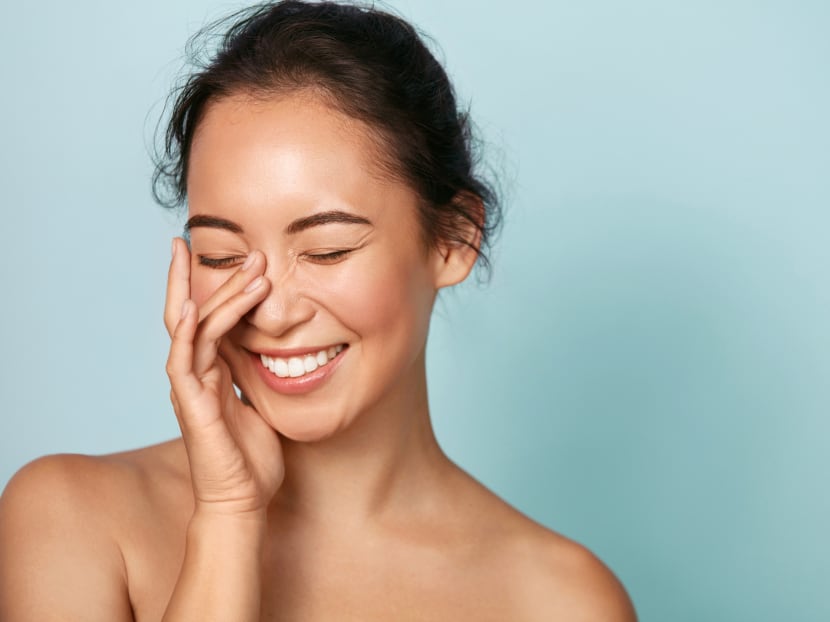
You should take care of your vulva as you would any part of your skin – that means keeping it clean and healthy. (Photo: iStock/puhhha)
A friend sent a video from late-night television show, Jimmy Kimmel Live!, to our WhatsApp group chat the other day.
It was titled “What Do You Know About The Female Body?” and had the production team hitting the streets to find out how much men knew about the female anatomy, in particular, the female reproductive system.
Naturally, my girlfriends and I laughed when we saw the video because the men interviewed had no clue where or what things were. But at the back of my mind, I wondered how much we, as women, even know about our own anatomy, especially the goings-on down south.
How many of us know the difference between the vagina and the vulva, for instance? Or if it’s an area of the body we should give extra care to (or none at all)? And really, what should we be doing?
VULVA VS VAGINA: DO YOU KNOW WHAT’S WHAT?
Contrary to what many think, the vagina is not the vulva – the vagina is part of the vulva.
“The vulva is the outer part of the female genitals that includes the opening of the vagina, labia majora (outer lips), the labia minora (inner lips) and the clitoris,” said Dr Coni Liu, a consultant dermatologist at Dermatology and Surgery Clinic.
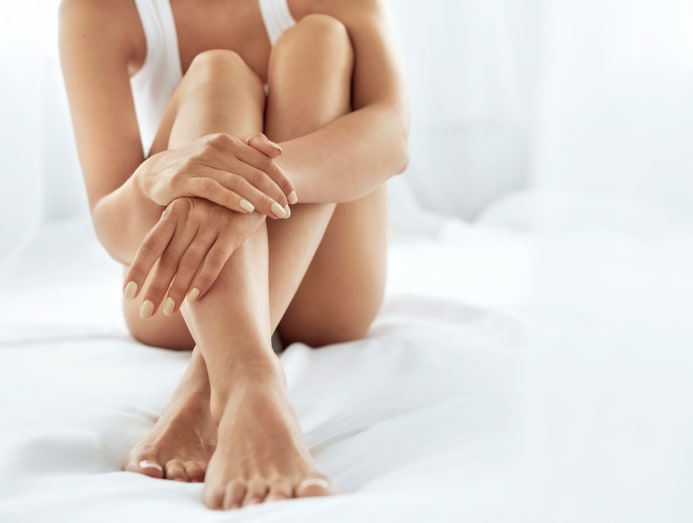
Think of the vulva as the “visible part of your genitals”, said Dr Pamela Tan, an obstetrician and gynaecologist with Thomson Medical Center (TLC Gynaecology Practice) in her web blog. This area includes the mons pubis (the fatty pad covered by hair), the groin and the perineum.
YOUR VULVA: THE NEXT FRONTIER OF INTIMATE CARE
Dr Liu believes it is time to give the vulva, also known as the Y-zone, some long overdue attention. “Skin from any part of the body, like our face, needs care and attention – but most people often only notice the skin on other parts of the body when it starts to give them problems,” she said.
Just like the face, the vulva is an area of skin that contains a high concentration of mucous glands, nerves and blood vessels, said Dr Liew Hui Min, a consultant dermatologist at HM Liew Skin & Laser Clinic. That makes a sensitive area, and why you should give it the same care as you would the skin on your face.
HOW TO KEEP THE VULVA CLEAN
“There is no need to keep the vulva excessively clean,” said Dr Liu. “If it is not particularly dirty from activities, you only need to wash the area when you shower.”
Interestingly, Dr Liew observed that in Asia, there tends to be a habit of keeping the vulva “way too clean”, which can irritate the area and lead to itching.
Experiencing these symptoms may then lead a woman to think she has caught an infection, which leads to more frequent washing. “She may even use antiseptics to clean it,” she added.

Should you use a dedicated feminine wash? Dr Liu cautioned that some may be too harsh and may cause more dryness and irritation to the area. Choose a wash that “does not strip off the natural oils on the skin and is ideally free from fragrances or essential oils to reduce the risk of contact allergy”, she said.
And don’t forget to always wipe or wash “from front to back”, said Dr Liew.
If you are experiencing discomfort or sensitivity in the area, Dr Tan said in her blog that the best remedy is to wash with “plain, lukewarm (not hot) water”.
WHY YOU SHOULD KEEP THE VULVA’S MICROBIOME IN BALANCE
The skin microbiome is an ecosystem made up of trillions of micro-organisms that keep the skin healthy. When the microbiome is thrown off balance, dermatologists say it can lead to skin conditions like eczema and acne. Studies have shown that the skin’s microbiome differs at different locations from head to toe
When it comes to the microbiome of the vulva, however, Dr Liew said that studies are limited, with some looking at different body mass index values in relation to vulva microbiome, and how these can alter its state.
This imbalance was found in the concentration of lactobacillus, known to provide protection, which may predispose one to vulva infections, Dr Liew added.
At the same time, Dr Liu said that “as the vulva area is close to the vagina, disturbances in the vaginal microbiome, such as vaginal thrush (also known as candidiasis), can affect the vulva directly”.
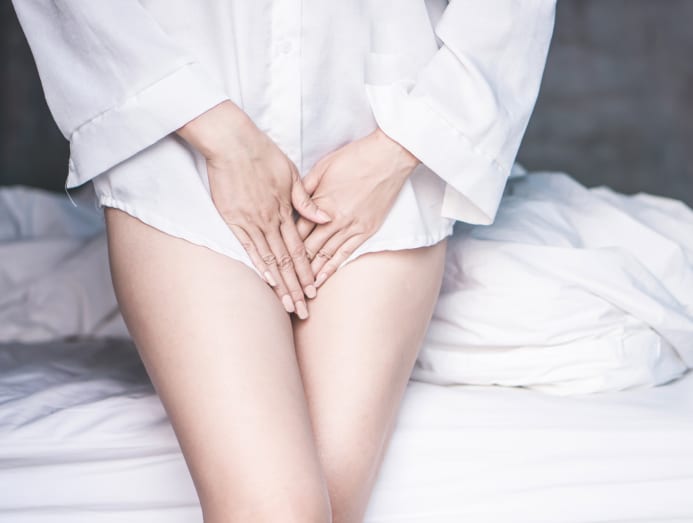
To keep the vulva’s microbiome in balance, Dr Liew recommends keeping a healthy lifestyle, and adopting these habits:
1. Take oral antibiotics only when needed. Oral antibiotics may give rise to vaginal thrust, a yeast infection that can cause irritation and even intense itchiness.
2. Add oral probiotics to your daily diet. This can be “helpful in those with recurrent vulva-vaginal infection and those who need to consume regular long-term oral antibiotics or even short courses of oral antibiotics for medical reasons”, said Dr Liew.
3. Eat yoghurt for better vulva and vaginal health. Yoghurt is not just good for gut health. To keep it even healthier, opt for sugar-free yoghurt as “diabetes predisposes one to recurrent thrush infection”, Dr Liew explained.
WHAT AGEING AND MENOPAUSE MEAN FOR THE Y-ZONE
How the skin on your face ages is exactly what you can expect at the vulva, said Dr Liu. This includes the loss of skin elasticity, hydration and the fat layer, as well as reduced muscle tone. Other age-related issues include increased pigmentation, sagging of the labia and a deflated appearance of the vulva.
Aesthetics aside, the dryness of the vulva skin can also lead to the development of eczema, which can in turn cause significant discomfort and distress. “It is not uncommon for some menopausal women to experience symptoms of atrophic vaginitis,” Dr Liew said.
Atrophic vaginitis is the thinning, dryness and inflammation of the vaginal walls. It is caused by to the thinning of the mucosal lining of the vaginal opening from the lack of oestrogen as women go through menopause.

That’s why, Dr Liu said, it is just as important to keep the vulva moisturised. And it should be done regardless of age because “regular moisturising of the vulva can reduce the risk of developing age-related dryness and eczema”.
The question then, is whether there is a need to use vulva-specific skincare. Beauty brands have introduced such products in recent years, from washes to lotions, oils, masks and even sunscreen for the area.
Actress Emma Watson divulged that she uses Fur Oil, a hair oil which she applies to her pubic hair to keep it soft and prevent in-growns, while reality star Khloe Kardashian uses Medicine Mama’s Vmagic to soothe and hydrate her womanly bits.
According to Dr Liu, the skin on the vulva behaves more like the skin on our lips, and thus “prefers a more petroleum-based balm as a moisturiser”. She added that the moisturiser you use doesn’t have to be Y-zone specific, and that something like Vaseline would work just as well.
YOUR CLOTHES AND UNDERWEAR MAKE A DIFFERENCE
With the recent trend of athleisure wear, many women are living in form-fitting and tight outfits, especially pants. “Tight fitting pants can produce constant friction on the vulva area and lead to increased pigmentation, dermatitis and boils in the friction areas,” said Dr Liu.
Another problem that women might face is folliculitis, which is the inflammation of hair follicles that can lead to infections on the skin.
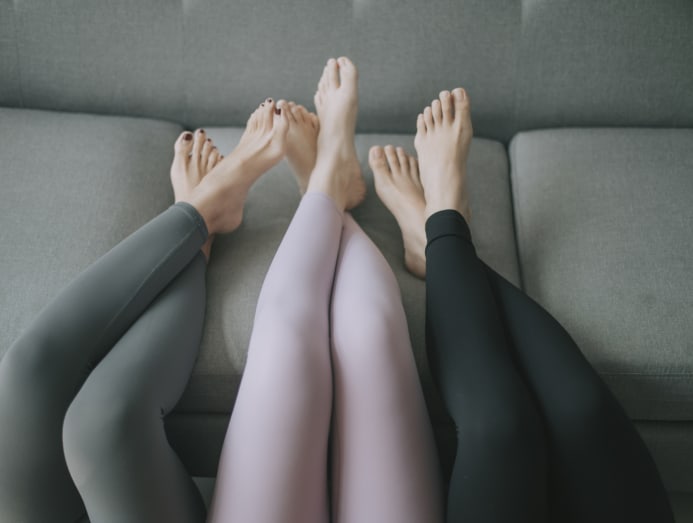
Dr Liew suggested that athleisure wear made from Dri-fit material and is comfortable to wear, might be a better option.
Besides your outfit, what you wear underneath can make a difference as well. While it might not be the sexiest, Dr Liu advised wearing underwear made of “soft materials like cotton or bamboo” as they are “most gentle on the skin, likewise, for the vulva”.
In addition, Dr Liew also recommended that you get new underwear every few months – underwear that is not cleaned or dried well can cause problems at the sensitive vulva area.
THE TYPE OF FEMININE HYGIENE PRODUCTS MATTERS
“The material on the sanitary pad is not as soft, so it can increase irritation, and if scented, can increase the risk of contact allergy, causing chronic dermatitis of the vulva,” said Dr Liu.
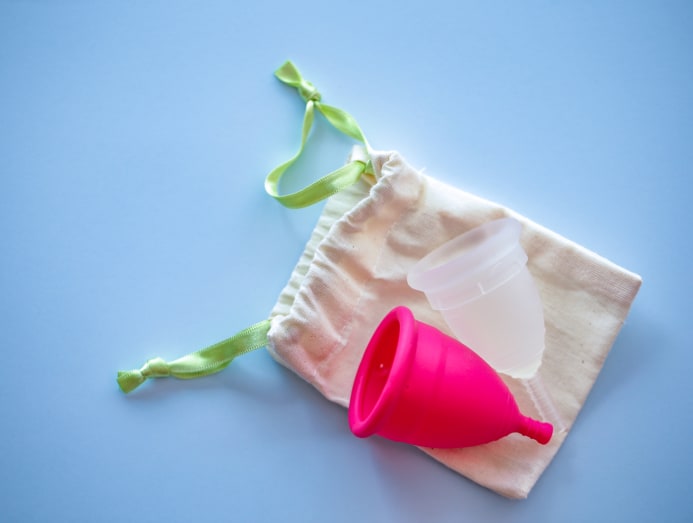
If your vulva is easily irritated, you might want to use tampons or menstrual cups when you’re on your period instead, said Dr Liew. Or try period underwear.
And if you’re the type to use panty liners daily, it’s time to stop, Dr Liew cautioned. These should be used during the end of your monthly cycle. “The dryness of a new panty liner will rub against the vulva skin, leading to itching,” she explained.
At the same time, vaginal discharge that gets trapped when you wear a panty liner daily, can create a moist environment for the vulva. This can lead to conditions from a rash to a vaginal yeast infection.
WHEN IN DOUBT, SEEK MEDICAL HELP
Ultimately, when it comes to vulval conditions, Dr Tan advised women not to treat their symptoms on their own.
“The reason why some DIY treatments fail is because you are not targeting the real cause. What you might think is a yeast infection could simply be dry skin, an allergic reaction, or it could already be a sexually transmitted infection.
“This is why you need medical care to ensure that you can treat the problem based on what’s causing it,” she said.
And until a vulva problem is diagnosed, it is wise to follow a gentle vulva care routine, which applies even when you are not dealing with a potential skin condition.
CNA Women is a section on CNA Lifestyle that seeks to inform, empower and inspire the modern woman. If you have women-related news, issues and ideas to share with us, email CNAWomen [at] mediacorp.com.sg.









